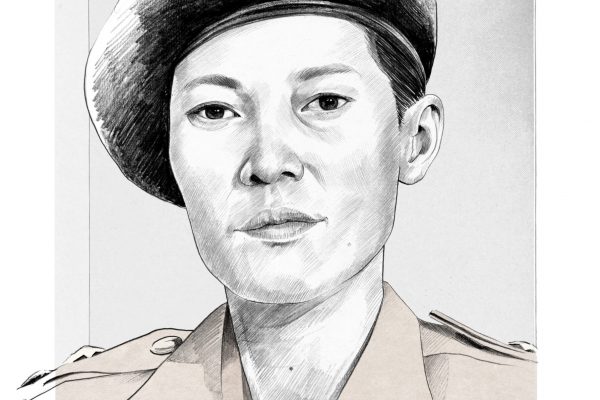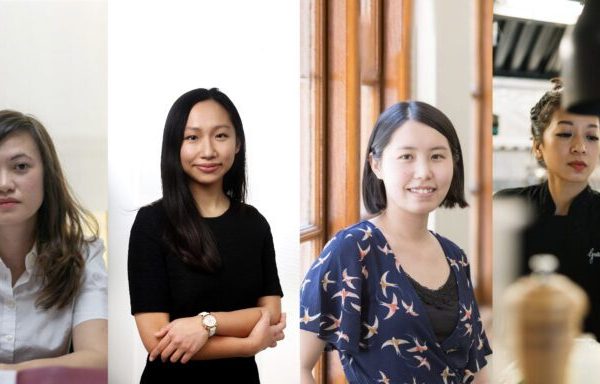Hong Kong mothers speak out about the realities of ‘working from home’ during Covid-19
Andrea Mak had always dreamed of becoming a mother. The Hongkonger and her two younger sisters had been raised by a single mother who had worked tirelessly to provide and give them a well-rounded upbringing – and to Mak, there was no greater role in life than being a mum.
Last November, Mak and her husband, both recruitment consultants who are in their late 30s, had their first child. Their newborn daughter brought much joy to their lives and, although Mak knew becoming a parent would change her life, she could never have planned for the sweeping economic, emotional and safety implications of the Covid-19 pandemic.
Since early 2020, the city has faced several waves of outbreaks. Mak and her family have been spending most of their time at home in their 777-square-foot apartment, due to a mix of safety and financial concerns.
It’s been a difficult time for women and mothers like Mak, who have suddenly found themselves overwhelmed by multitasking – working full-time from home while juggling childcare, cooking, cleaning and financial responsibilities.
UNCERTAINTIES AHEAD
“First, my husband took a pay cut, and then I received one as well. But since I was on [my 10-week] maternity leave after my daughter was born in November, they couldn’t fire me,” says Mak. “Then, my husband was made redundant. Two weeks later, I returned to work from maternity leave, I was also let go.”
Mak, who has since taken up work as a freelance recruiter, is the sole breadwinner, as well as the main homemaker now. “Before the pandemic, my husband and I were considered high-income earners,” she says. “But then with Covid-19, and as Hong Kong had already been quite affected by the last year of protests – financially, things have gotten much worse.”
“Even without going to the office, my time goes by so quickly,” says Mak. “I am always taking care of my baby… My husband mainly helps with childcare, like playing with the baby,” she says, explaining that he is pouring his energy into finding a new job and, like many people, is working through pandemic-related personal challenges.
“I don’t have much money to spare these days,” she adds. “I spend 70 per cent of what I earn on feeding my family for breakfast, lunch and dinner.” She adds that she now finds herself cooking dinner every night – something she rarely did before.
Hong Kong is facing its highest unemployment rate – at 6.2 per cent – in over a decade, according to government figures. A study of 1,045 respondents conducted by recruitment firm Randstad Hong Kong in April and May 2020, found that 49 per cent of respondents were actively seeking new jobs.
While Hong Kong has yet to conduct its own survey on women’s labour during the pandemic, a UN report states that women spend 4.1 more time than men on household chores, childcare and other unpaid forms of labour. Prior to the pandemic, women around the world already contributed 12.5 billion hours of labour at home, according to the same report.
In Hong Kong, NGOs and local media report that the pandemic has “exacerbated existing inequalities” and contributed to a rise in issues such as domestic violence, home labour and financial burdens.
INCREASING RESPONSIBILITIES
For many mothers, the increased level of responsibilities can be difficult. “I have found the juggle between working full-time and staying on top of home-schooling tough,” says Liz Thomas, a mother of two. She is also a journalist and the founder of #ItTastesLikeLove, a campaign that aims to normalise breastfeeding.
“There’s no consideration from the authorities in Hong Kong about how parents who work will manage. I am a very hands-on mum but I still work a long day and working remotely doesn’t change that. [And] It is not really possible for me to meet the educational curriculum set for my eldest and it feels unfair for him.”
She adds that she has a lot more on her mind these days. “I think the biggest worry me and many other mothers have is what happens to our children if any of us test positive,” she says. “Hong Kong has incredibly strict isolation rules, which means families are being separated. My children are under 5, the youngest is still breastfeeding, the emotional impact on both of them of being taken away by strangers in protective gear, and the stress of hospital would be enormous if I am unable to be with them.”
While the city’s health authorities have valid reasons, Thomas says: “I don’t think they really consider the mental toll of such actions on small children.”
A CALL FOR HELP
Andrea Mak, the new mother, says although extended family has stepped in to help in some cases, most mothers continue to face a growing list of challenges as the pandemic continues.
“My friends get more help from their partners these days; some grandmas babysit children or the children attend classes [if they can afford them].”
A 2019 report by the government’s Women’s Commission showed that there were over 620,000 women who were full-time housemakers, against 207,000 men who stated the same occupation. Many experts attribute this inequality to Hong Kong’s gender wage gap: 90 per cent of men made more than HK$10,000 per month, compared with only 66 per cent of women, according to 2018 government data.
Additionally, Hong Kong’s maternity and paternity leaves have long been under fire for being abysmally short. While the government recently extended maternity leave from 10 to 14 weeks, it is still among the shortest in Asia, according to news reports.
New fathers are entitled to just five days of paid paternity leave per child, which many experts, such as Fiona Nott of The Women’s Foundation, say creates a situation where women become the de facto primary caregiver and homemaker.
More than half of employers in the city say they prefer not to hire women with children, Nott stated in a 2019 op-ed. And, in a recent Women’s Commission survey, nearly a third of women who left the workforce stated they did so in order to care for their families at home. A separate government report found that women aged 15 and above perform four times more household chores than men.
Those like Mak find this situation frustrating.
While some are able to hire domestic workers to ease the load, not everyone has the means to employ a housekeeper or childcare provider, particularly given the financial burdens caused by Covid-19.
“Being a mother in Hong Kong was already tough enough to begin with. In families where both parents still work, people now have to find babysitters to take care of their children because schools were closed for a while,” she says, of when schools, daycares and academies shut down twice from May until late September this year.
“Mothers have to find someone to watch their kids, then go pick up their kids after work, rush home, and cook and clean for everyone.”

